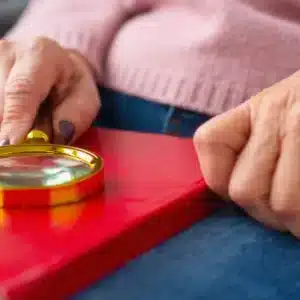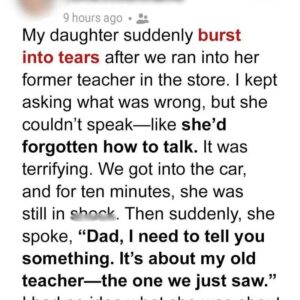When I asked my girlfriend to move in with me, I thought it would be the start of something beautiful. Instead, it became a nightmare that made me realize I should never have invited her into my home.
I’m Brandon. Two years ago, my parents died in a car accident. I was 28, just beginning to navigate adulthood, when I suddenly became the legal guardian of my 14-year-old brother, Liam. It was the most painful moment of our lives. Liam, still just a kid, was forced to grapple with unimaginable grief.
I remember the nights he’d wake up crying, asking why our parents had to die. I’d sit with him at 3 a.m., trying to stay strong while holding back my own tears. “We have to be brave,” I’d whisper. “We’ll get through this together.”
Those early months were brutal. I had no idea how to be a parent, but I did everything I could—getting him to school, packing lunches, attending teacher meetings. Liam had to switch schools and leave his old life behind. Despite all that, he stayed strong and began rebuilding.
Today, Liam is 16 and thriving. He works two jobs, saves for college, and still manages to keep up in school. He’s my best friend and my greatest responsibility. That’s why what happened with Melissa hurt so much.
Melissa and I met at a coffee shop. She dropped a pen, I picked it up, and we started talking. She was charming, funny, and seemed genuinely kind. When I told her about Liam, she was all sympathy and support. “You’re such a good brother,” she said. I thought I’d found someone who understood my life.
We dated for almost a year before I asked her to move in. She agreed—but only on the condition that she wouldn’t contribute to rent. “I don’t want to feel like a tenant,” she said. I wasn’t financially stable, but I agreed. I thought love meant compromise.
The day she moved in, Liam was excited. He even joked about finally learning to cook something besides ramen. I left to grab groceries and planned a special dinner for our first night as a new household.
But when I returned, I found Liam’s belongings—his clothes, books, even his laptop—stuffed into boxes and garbage bags on the front porch.
Melissa opened the door like nothing was wrong. “I got a lot done while you were gone,” she said.
I stood frozen. Liam arrived moments later, his eyes wide in disbelief. Melissa turned to him and said, “You’re a big boy now. Couples need their space. You can’t freeload forever.”
I saw the pain in Liam’s eyes and something inside me snapped. I confronted her, furious. She called him spoiled and said I’d never prioritize our relationship if he stayed.
That’s when I knew—this wasn’t the woman I thought she was.
“You moved in this morning,” I said, “and you’re moving out tonight.”
She tried to change my mind, but I was done. Liam was my family, my responsibility, and my heart. Anyone who couldn’t accept that didn’t belong in our lives.
We carried his things back inside. He apologized through tears, blaming himself. I told him, “You didn’t cause this. She just showed her true colors.”
Melissa packed her things and left. And as she walked out, I felt an unexpected peace settle in.
That night, Liam and I sat on the couch, surrounded by boxes. We laughed about the chaos. “Those boxes got more action today than a moving company,” I joked.
He smiled. “Thanks for having my back.”
“Always,” I said.
Melissa did me a favor. She reminded me that love without respect for what matters most isn’t love at all. Liam and I—we’re still a team. And our home is better without her.





